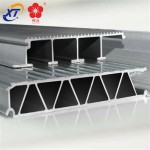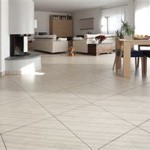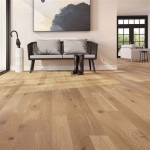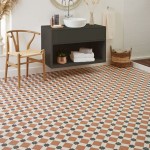Installing Bamboo Flooring On Particle Board: A Comprehensive Guide
Installing bamboo flooring on particle board presents a unique set of challenges and considerations. While particle board is a common subfloor material, its inherent properties can impact the success of your flooring project. This guide aims to provide a comprehensive understanding of the process, covering key considerations, preparation steps, and installation techniques.
Understanding the Challenges
Particle board, also known as chipboard, is a wood-based panel made from wood chips or sawdust bonded with resin. While it offers affordability, it lacks the structural integrity and stability of plywood. Key challenges associated with installing bamboo flooring on particle board include:
- Uneven Surface: Particle board can warp or sag over time, creating an uneven surface that will be noticeable under bamboo flooring.
- Moisture Sensitivity: Particle board is susceptible to moisture damage, which can lead to warping, swelling, and structural failure. Bamboo flooring, being a natural material, can also be affected by moisture.
- Strength and Stability: Particle board has lower strength and stability compared to plywood, which can make it difficult to secure the bamboo flooring planks securely and prevent movement.
Preparation Is Key
Proper preparation is paramount to ensure a successful installation of bamboo flooring on particle board. Key steps include:
- Assess the Subfloor: Inspect the particle board subfloor for any signs of warping, sagging, or damage. Repair any defects before proceeding.
- Leveling the Subfloor: If the subfloor is uneven, use a leveling compound to create a smooth and flat surface. This is essential for a stable and visually appealing bamboo floor.
- Moisture Barrier: Apply a moisture barrier over the particle board to protect the bamboo flooring from moisture damage. This can be a vapor barrier or a layer of high-quality paint.
Installation Techniques
Once the particle board subfloor is prepared, you can start installing the bamboo flooring. Here are some recommended techniques:
- Use the Right Adhesive: Choose a high-quality adhesive specifically designed for bamboo flooring and particle board. This will ensure strong bonding and prevent movement over time.
- Consider Underlayment: Adding a layer of underlayment between the particle board and the bamboo flooring can provide additional cushioning, sound insulation, and stability.
- Secure Installation: Secure the bamboo flooring planks using a combination of adhesive and mechanical fasteners. Using a nail gun or staple gun with appropriate fasteners will prevent planks from lifting or moving.
Additional Tips
Here are some additional tips for success:
- Consult Professionals: If you are unsure about the suitability of your particle board subfloor or the installation process, consult with a professional flooring installer. They can assess the situation and offer expert advice.
- Follow Manufacturer's Instructions: Always refer to the bamboo flooring manufacturer's instructions for specific installation recommendations and precautions.
- Maintain Proper Ventilation: Ensure adequate ventilation in the room to prevent moisture build-up and potential damage to the bamboo flooring and subfloor.
Installing bamboo flooring on particle board requires careful consideration of its specific characteristics and challenges. By following the preparation steps, implementing appropriate installation techniques, and seeking professional advice when needed, you can achieve a successful and long-lasting flooring installation.

How To Fit Bamboo Flooring Onto Chipboard The Company

Particle Board As A Flooring Solution

You Cant Install Hardwood On Particleboard Here S What Need To Do

You Cant Install Hardwood On Particleboard Here S What Need To Do

Compressed Bamboo Flooring Installation Instructions Plantation

How To Install Lock Engineered Hardwood Flooring

How To Install Oak Hardwood Floors Young House Love

Bamboo Flooring Explained Craftedforlife

Home Decorators Collection Strand Woven Harvest 3 8 In T X 4 92 W 36 1 L Solid Bamboo Flooring 24 76 Sqft Case Hl271s The Depot

Best Engineered Wood Flooring For Your Home The Depot








